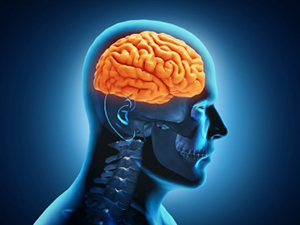A traumatic brain injury can cause a variety of severe symptoms affecting a victim’s independence and quality of life.
 According to the CDC, around 1.7 million Americans experience a traumatic brain injury each year, primarily from blows to the head suffered in car accidents, falls, sports accidents, etc. Some other individuals may experience an acquired brain injury in a drowning accident or a medical emergency that deprives oxygen to the brain. In either case, the brain injury will result in brain damage. This damage may be mild to severe depending on the circumstances of the accident, but it will always have an impact on the victim’s life. If you or a loved one has suffered a brain injury due to another’s negligent or reckless behavior, you may be entitled to compensation.
According to the CDC, around 1.7 million Americans experience a traumatic brain injury each year, primarily from blows to the head suffered in car accidents, falls, sports accidents, etc. Some other individuals may experience an acquired brain injury in a drowning accident or a medical emergency that deprives oxygen to the brain. In either case, the brain injury will result in brain damage. This damage may be mild to severe depending on the circumstances of the accident, but it will always have an impact on the victim’s life. If you or a loved one has suffered a brain injury due to another’s negligent or reckless behavior, you may be entitled to compensation.
Typically, an individual with a traumatic brain injury from an accident will experience most or all of the types of brain damage symptoms discussed below, because a blow to the head usually results in diffuse damage affecting multiple different areas of the brain.
Cognitive Symptoms
Damage to the frontal lobes, which are the seat of reason and logic, can result in impairment of the victim’s ability to remember and process information, understand abstract concepts, express their thoughts, and make decisions.
Perceptual Symptoms
When the sensory areas in the parietal, occipital, or temporal lobes are damaged, individuals begin perceiving the world differently. Vision, hearing, smell, taste, and touch can all be affected. Some victims also experience increased sensitivity to pain, spatial disorientation, inability to sense time, and/or problems with balance.
Physical Symptoms
A traumatic head injury can also cause physical symptoms including headaches, tremors, seizures, blackouts, extreme fatigue, and even paralysis.
Behavioral/Emotional Symptoms
A brain injury can also change the victim’s personality by affecting their mood, emotions, and behavior. Some victims may become overly emotional, while others may experience a flattening or deadening of emotional reactions. Irritability, aggressiveness, and impatience are also common.
Seeking Compensation for Traumatic Brain Injuries
Recovery from a severe brain injury is a time-consuming and expensive process, often requiring multiple different therapies to address different types of symptoms. For example, a patient might need physical, occupational, and speech therapy as well as psychological counseling. It is very important to consult with a skilled personal injury attorney who is experienced in traumatic brain injury cases and will consider the need for all of these treatments when evaluating your claim. An inability to return to work in your chosen field, as well as disruption to relationships with family members, should also be considered as potential sources of compensation. When you trust Fernando D. Vargas as your traumatic brain injury attorney, you can rest assured every detail will be considered to help secure the best possible resolution to your case.




